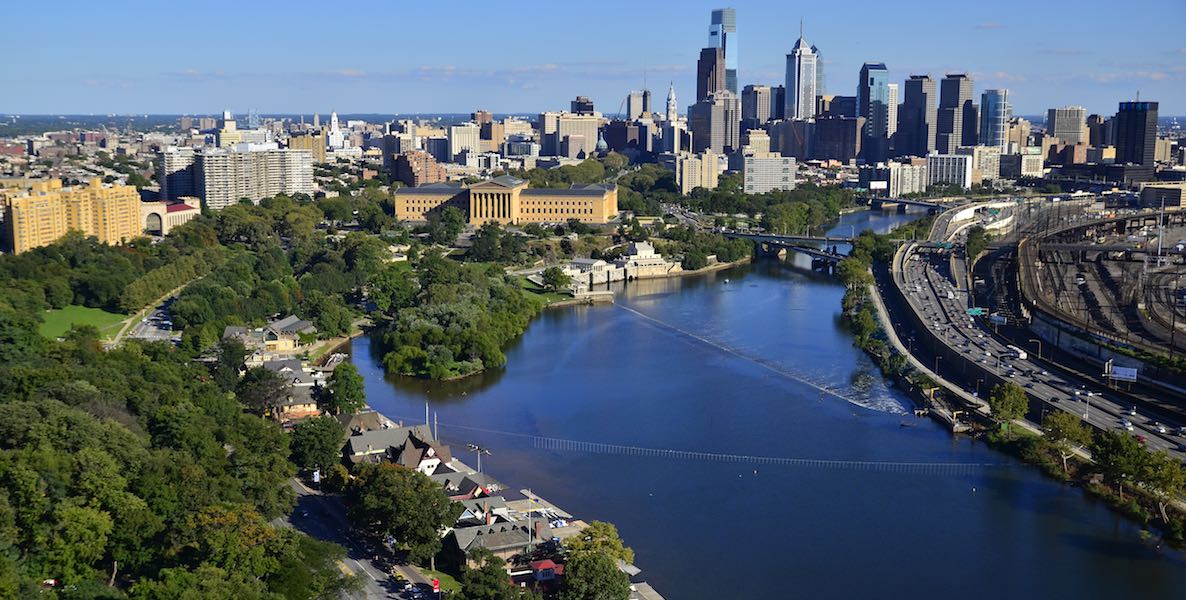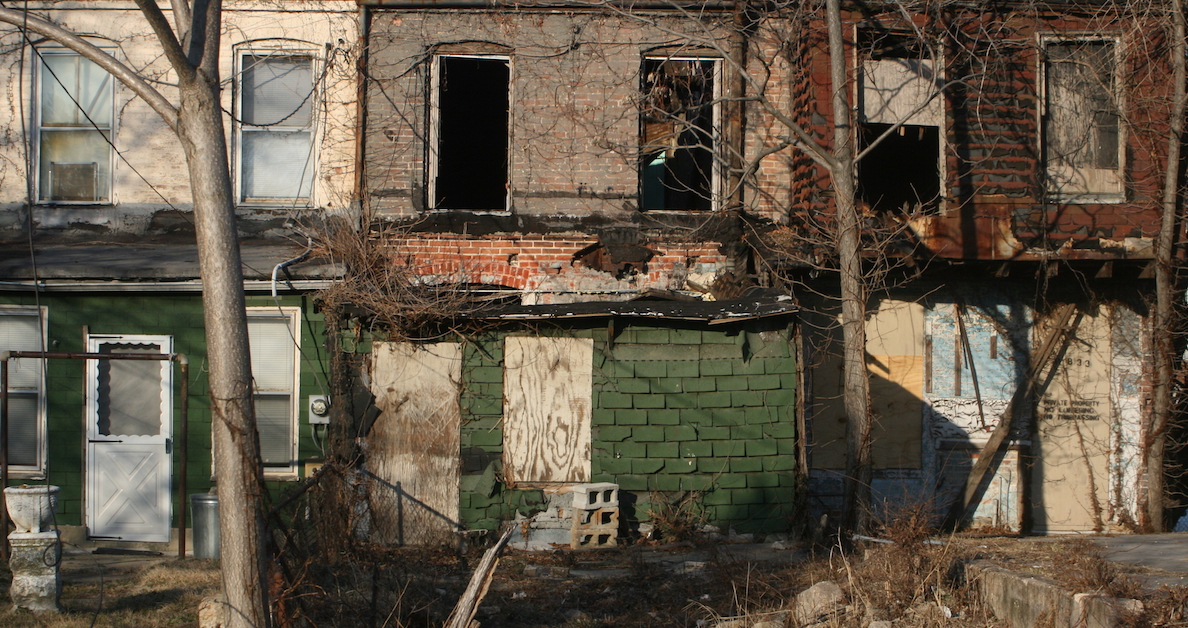I have previously argued that our country has divided into two largely separate and antagonistic worlds, which after the 2016 election can be conveniently called Trump World (rural and exurban) and Urban World (big cities and their neighboring suburbs). One challenge for Urban World is how to overcome the structural weakness of having so much of its political power bound up in city governments that are subsidiary to state governments that are the increasingly aggressive creatures of Trump World.
How can we increase our power? By reimagining city policies as tools that can be used to forge a path toward a more socially and politically cohesive metropolitan area. One of the more obvious places to start is with the city’s wage tax, since it is already a metropolitan-wide policy in the sense that it is paid both by city residents and non-resident commuters who work in the city, most of whom live in one of the collar counties (though a large proportion also live in New Jersey).
I propose that we reimagine the commuter wage tax as reparations for white flight to the suburbs. In exchange, suburbanites would get the right to vote in city elections. Reimagining the commuter wage tax as reparations might serve as the ideological basis for expanding the tax to suburban residents who are not commuters, and the right to vote in elections that shape their urban center should make it more appealing to those residents in neighboring counties.
Established in 1939, the Philadelphia city wage tax has always been levied on both city residents and suburban commuters, though starting in 1983 suburbanites paid a slightly lower rate than city residents. Having been around for nearly eight decades, the wage tax has a long and relatively fraught history, as detailed in an old but still very useful report by the Economy League of Greater Philadelphia.
I propose that we reimagine the commuter wage tax as reparations for white flight to the suburbs. In exchange, suburbanites would get the right to vote in city elections.
Among other important details, the city now depends for the majority of its revenues on the wage tax, which more than other taxes has probably incentivized many workers and businesses to leave the city, and in its current structure may be unconstitutional.
Suburban officials don’t like the commuter wage tax because suburban residents who pay it are exempted from paying wage taxes in the suburbs in which they live (the result of a 1947 state law known affectionately as the “Tax Anything Act”). Indeed, suburban officials have recently sought to revive a proposal that Philadelphia should have to return a portion of the wage tax revenue that it collects from suburban residents back to the suburban municipalities.
The suburban officials who want a share of Philadelphia’s commuter wage tax revenue have a point. During the early history of the wage tax, its defenders argued that jobs in the city to which suburbanites commuted wouldn’t exist were it not for the presence of Philadelphia. The commuter tax was thus a sort of user fee paid to the city for the jobs it made available, in an era when there weren’t many jobs in the suburbs.
Today that argument is far less plausible, as jobs are more equally dispersed throughout the metropolitan region, reflected in the fact that, of the slightly more than 300,000 people who commuted to work in Philadelphia and the four collar counties in 2015, 42 percent commuted from their homes in the city to their jobs in the suburbs. Given the increasingly dispersed nature of work in the metropolitan region, it seems an open question how long Philadelphia can justify the pre-emptive nature of its wage tax.
Yet the argument that suburban counties should get the same rights as Philadelphia to the commuter wage tax ignores the history of why residents and jobs left the city for the suburbs in the first place, and why Philadelphia today is stuck absorbing most of the costs of the region’s poverty. This is a history that can be conveniently summarized by the term “white flight,” and it provides a new and arguably more viable justification for why the city should get to tax suburban residents.
As black people started to arrive in Philadelphia in large numbers as part of the Great Migration, especially after World War II, white people left in even greater numbers for the suburbs. Between 1950 and 2010 Philadelphia experienced both a massive net population decrease (from 2.1 to 1.5 million people) and a massive increase in the proportion of its population that was black (from 17 to 43 percent). During the same 60 years Montgomery County, like other suburban counties, experienced a massive net increase in population (from 350,000 to 800,000) and a very modest increase in its black population (from 4 to 9 percent).
Black people did not move to the suburbs in the same numbers as white people because a host of well-documented policies and practices excluded them on the basis of their lower incomes and skin color. And as employers followed their workers to the suburbs, black people stuck in the cities had increasingly less access to jobs.
The flight of both companies and higher-income residents to the suburbs also meant a decrease in the city tax base at precisely the moment that the city needed more money to level the playing field between its poor and disproportionately black population, and the wealthier and whiter population in the suburbs.
The legacy of suburban economic and racial segregation is reflected in the divergent poverty rates between the collar counties (which in 2015 ranged between 6 and 10.4 percent) and Philadelphia (25.4 percent), where approximately half the people living in poverty, or roughly 190,000 people, are black.
There are of course also poor black communities in the suburban counties, and there is and always has been plenty of economic and racial segregation within Philadelphia. It is, after all, people and not municipalities that have skin, and thus municipal boundaries will only ever be a very rough tool in segregating people of different skin colors. And white families did not have to be racists to want to move to areas with less crime, newer houses, cheaper mortgages, and better schools.
Yet the decision to move to the suburbs was made in the context of policies and practices that preserved the whiteness of those suburbs. The city-suburban divide is one of the classic examples in American history of institutional racism–that is, a set of rules that leads to racist outcomes even if the individuals following those rules are themselves not personally racist.
The best solution, Wharton economist Robert Inman has argued, would be a transfer of suburban tax revenues to the city, specifically for poverty relief, which should be matched by a proportional reduction in the commuter wage tax. In other words, my suggestion of a reparations tax largely reiterates Inman’s earlier suggestion, though with the addition of reparations.
The commuter wage tax redistributes some of the metropolitan region’s tax revenue from the suburbs to the city. To the extent that that redistributed tax revenue provides assistance for Philadelphia’s poor black residents, it already serves as reparations for the damages wrought by the institutional racism of the city-suburban divide.
By suggesting a reparations tax that would fall on a broader suburban population than does the current commuter wage tax, I am actually proposing a potential reduction in the tax burden of some suburbanites. And as at least one person who is smarter and who has done more research on the subject than me has suggested, suburbanites should actually welcome a program in which they provide resources for city residents.
Wharton economist Robert Inman, who has often been cited for his finding that increases to Philadelphia’s wage tax resulted in the loss of more than 200,000 jobs in the city, has also argued that the city’s disproportionate responsibility for providing services to poor residents puts a disproportionate tax burden on city residents and businesses, which has historically created a downward spiral of increasing taxes on those residents and businesses most likely to leave for the suburbs. And that in turn creates a poorer city that also impacts especially the suburbs closest to the city by significantly decreasing suburban home values.
The best solution, Inman has argued, would be a transfer of suburban tax revenues to the city, specifically for poverty relief, which should be matched by a proportional reduction in the commuter wage tax. In other words, my suggestion of a reparations tax largely reiterates Inman’s earlier suggestion, though with the addition of reparations.
And though the notion of reparations to white Americans typically conjures up notions of a zero-sum game, combining my suggestion with that of Inman’s suggests that it might actually make everyone better off. As Inman has noted, “Regional financing of the cost of poverty is an opportunity for Philadelphia and the suburban counties to work together for the benefit of all residents of the Delaware Valley. If it is done correctly–for example, city poverty relief is exchanged for lower commuter tax rates for suburbanites–regional fiscal reform can be a true win-win, enhancing house values in the city and suburbs alike.”
Simply renaming Philadelphia’s commuter wage tax a reparations tax, and the public debate that would ensue, would at the very least acknowledge the debt that the entire metropolitan population owes to its most vulnerable citizens, and would highlight at least part of the institutional structure that has reinforced the underclass status of so many of the region’s black people.
Renaming the commuter wage tax would also suggest at least four more substantive policy changes. First, renaming the tax would highlight the obvious fact that commuter wage tax revenues do not necessarily go to services specifically devoted to repairing the damages wrought by white supremacy. Thus a policy change to accompany the name change would be to dedicate its commuter portion to a fund to be used for programs to assist the city’s poor black residents.
Second, reconceiving the wage tax as reparations begs the question of why the tax should fall exclusively on suburbanites who work in Philadelphia. After all, if city-suburban segregation is a product of institutional and not individual racism, then the burden of reparations should to the greatest extent possible fall on institutions rather than individuals. Thus shifting from a commuter wage tax to reparations suggests several potential alterations in the tax. It could, for instance, take the form of a formula-based transfer of funds from the suburban county governments to the city reparations fund, or a suburban sales tax, the revenues from which would be dedicated to the reparations fund.
Third, Philadelphia is the largest but by no means the only old industrial city in the metropolitan region. Cities such as Chester and Norristown also suffered from white flight and segregationist policies and practices. Thus reparations tax revenues should not be dedicated to just the poor black residents of Philadelphia, but also to those in municipalities throughout the region that have been damaged by the effects of racial segregation.
Fourth, as a reparations tax for white flight, the lower tax rate currently paid by suburbanites would no longer make sense. There was arguably just as much racial segregation between different Philadelphia neighborhoods (except for Mount Airy–a fact its residents are insufferably proud of) as between the city and its suburbs, and white city residents with higher incomes such as myself should certainly also be subject to a reparations tax.
The commuter wage tax redistributes some of the metropolitan region’s tax revenue from the suburbs to the city. To the extent that that redistributed tax revenue provides assistance for Philadelphia’s poor black residents, it already serves as reparations for the damages wrought by the institutional racism of the city-suburban divide.
At the same time, as a city resident, compared to the average metropolitan tax burden, my local taxes already go disproportionately to services for poor and largely minority residents. A reparations tax should at the very least equalize the responsibility across the entire metropolitan population of providing adequate services for poor residents, which would most likely suggest a higher rate for the suburbs, though one that does not fall exclusively on suburbanites who work in the city.
One of the more recent and eloquent discussions of American racism, both individual and institutional was Ta-Nehisi Coates’s 2014 Atlantic article, “The Case for Reparations.” He largely neglected white flight in his original essay, for which he has been widely criticized (unfairly in my view). But he gets to the heart of the argument I’m making when he says:
I believe that wrestling publicly with these questions matters as much as—if not more than—the specific answers that might be produced. An America that asks what it owes its most vulnerable citizens is improved and humane. An America that looks away is ignoring not just the sins of the past but the sins of the present and the certain sins of the future. More important than any single check cut to any African American, the payment of reparations would represent America’s maturation out of the childhood myth of its innocence into a wisdom worthy of its founders.
Header photo: urbanfeel via Flickr.





